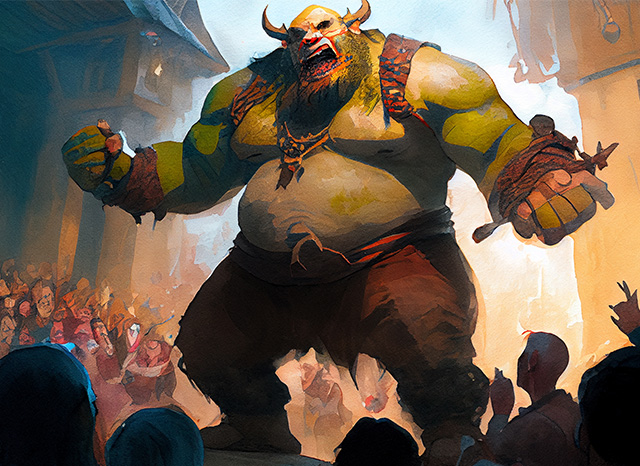
Image Credit: Studentessa Matta Illustration
Mamma si muove come Jagger e
mi insegna a ballare come Beyoncé!
Mamma moves like Jagger and teaches me to dance like Beyoncé!
Matta Italian Prepositions: Set Number 2
Balliamo con la preposizione ”A”
Dancing with the Italian Preposition “To”
In una nuova serie di post, presento una breve serie di parole che prendono specifiche preposizioni per aiutare gli studenti di lingua italiana a capire e memorizzare queste combinazioni.
In a new series of posts, I present a short set of words that take specific prepositions to help Italian language students understand and memorize these combinations.
How do we learn all these tricky prepositions?

Proprio come imparare nuovi passi di danza,
dobbiamo impararli a memoria.
Just like learning new dance moves,
we have to memorize them!
Matta Preposizioni italiane
Set Number 2 — Italian Preposition “A”
The preposition “A” is equivalent to the English word “to.” Sometimes it can also mean: “at,” “when,” “what time,” and “how.”
Attenzione: sometimes you need to articulate the preposition, combining it with the definite article.
Set #2: Italian Verbs that are always followed
by the preposition “A” + noun.
Aiutare
Riuscire
Abituarsi
Imparare
Insegnare
A
A
A
A
A
– To help do something
– To succeed at doing something
– To become used to something
– To learn something
– To teach something to someone
Posso aiutarti A ballare la salsa se vuoi.
I can help you learn how to dance salsa if you want
Non riesco ancora A ballare il tango argentino, ma sto prendendo lezioni per imparare.
I still can’t dance Argentine tango, but I’m taking lessons to learn how to do it
Mi ci è voluto un po’, ma ALLA fine mi sono abituato a ballare con scarpe con i tacchi alti.
It took me a while, but in the end, I got used to dancing in high-heeled shoes.
Sto imparando A ballare il valzer per il matrimonio di mio fratello.
I’m learning how to dance the waltz for my brother’s wedding
Mia madre mi ha insegnato A ballare quando ero giovane.
My mother taught me how to dance when I was young.
Italian expression using the preposition “A”
A piedi = to go by foot













Mi ci e’ voluto un po’ Can you explain the use of “ci” – grazie!!
Ciao Bonnie! Che piacere sentirti!
In the sentence: “Mi ci è voluto un po’, ma ALLA fine mi sono abituato a ballare con scarpe con i tacchi alti.” — the verb at the beginning of the sentence is the PRONOMIAL verb “Volerci” and means to take time (with no subject)..
Pronomial verbs are verbs that are paired with pronouns (ci, ne, la ) that change the meaning of the verb. (similar in the way that adding si to a verb changes it’s meaning making it reflexive)
It is used to express the time it takes to do something.
Present tense: Ci vuole un minuto per bere un caffè. (It takes a minute to drink a coffee.)
Ci vogliono dieci minuti per andare a scuola a piedi. (It takes ten minutes to go to school by foot.)
Past tense: C’è voluto un minuto per bere un caffè. (It took a minute to drink a coffee.)
Ci sono voluti dieci minuti per andare a scuola a piedi.(It took ten minutes to go school by foot).
Other pronomial verbs are:
Metterci (which means the exact same as volerci – the time it takes to do something.
Farcela – to manage to do something
Andarsene – to leave, go away
Cavarsela – to be good at doing something.
You can learn more about the pronomial verbs in a previous post I wrote about Volerci called “Metterci vs Volerci: Tic Toc. Tic .Toc. How long does it take in Italian” I explain more in depth how to use VOLERCI
https://www.studentessamatta.com/metterci-volerci-expressing-time-to-do-something-italian-grammar-ci-vuole-ci-vogliono/
Let me know if you have additional questions! A presto! Melissa